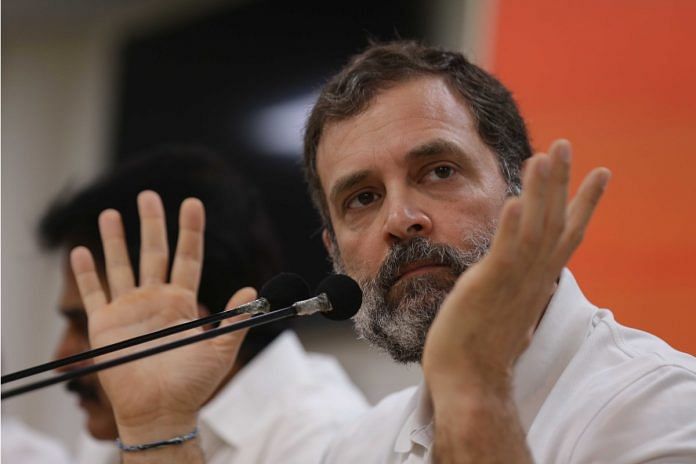I am all too often, for good or bad, reminded of a public debate I took part in some winters ago in Delhi. The topic of debate was: “Is India a ‘rule of law society?’” I made the case that India was not, contrary to its self-image, a rule- or law-based society. I was supported by a young scholar from a national law school. Our foes were formidable: establishment intellectuals close to the Narendra Modi government, one a Supreme Court lawyer, another a journalist turned parliamentarian. This David versus Goliath debate was refereed by a television celebrity journalist. At the end of 90 minutes, the argument was decided by a popular vote: my side won the big, crowded hall overwhelmingly. The schoolgirl debater in me was thrilled.
But a deeper disappointment soon overwhelmed me. The voting audience were all stakeholders in the Indian legal order: lawyers, policymakers, the odd politician and law students. The venue was the venerable Constitution Club of India. If those responsible for upholding the law did not believe in it, then what really is the status of Indian law? And here comes the paradox: we might not believe in the rule of law or its efficacy but hell yes, we all know that the law is all-powerful. To top it, this paradox is soaked in bad faith!
Defamation
So, you don’t have to be Rahul Gandhi to know that the law is a potent blunt instrument. A Surat district court order convicting the Congress leader in a 2019 defamation case has led to his disqualification from Parliament last week. I am not even going into the surround sound of Adani-gate or questioning the judgement or sentence.
As it made global headlines last week, I was asked by a curious radio presenter of news here as to why such a heavy prison sentence had been passed on Rahul Gandhi over a defamation charge, a civil offence in the United Kingdom. It is timely, therefore, to ask why defamation in India is also criminal but not a pure civil offence. It is after all the charge that has ejected Rahul Gandhi out of representing the good people of Wayanad, his parliamentary constituency in Kerala. On this at least and as a historian, the question is a simple one to address.
This is a colonial-era law that has remained on the statutes of the world’s lengthiest constitution. Before you shout, ‘let’s decolonise!’, here comes the rather tricky historical context of this law. In its English origins, the law of sedition came from the law of libel or defamation itself. To cut a very long and turbulent story short, in the era of religious wars in early modern England, sedition or treason was separated from libel or defamation, and as a specific harm to the sovereign or monarch and latterly the government. So, defamation for us mere mortals and sedition for kings, queens and rulers of the day.
And yes, the noble constitution writers such as BR Ambedkar or Vallabhbhai Patel kept both sedition and defamation on the statutes and as criminal law too. No, they were not lazy to shake off some colonial hangover. Instead, this was a considered choice as no less than KM Munshi had raised sedition and related infringements on individual liberty, to be repealed. Munshi lost.
Also read: Don’t bar Rahul Gandhi from contesting election—or any convicted criminal for that matter
Law contra politics
If Amedkar et al were not lazy then why keep those very draconian laws that the British empire had deployed to control and depoliticise India under their rule? The answer is debatable. But, however you look at it, it concerns the regulation of politics. Ambedkar had matured as a thinker during the height of MK Gandhi’s civil disobedience movements that had taken the peaceful breaking of the law as the arch political act. For the constitution writers, with Indian freedom, disobedience of the law had served its purpose. In independent India, thus, what was required was a disciplining of politics so that the rule of law could prevail. As a result, India now lives with two potent forms of political life: a law that can be blunt and draconian, and a politics (of all hues) that is far from being disciplined or even nonviolent.
Whether it is Law Minister Kiren Rijiju who rages against the judiciary or a colonial-era law that sees a popular leader rudely ejected out of his hard won and popular office, the relationship between law and politics goes well beyond any reform of a statute.
Or even how judges are appointed or what they might or might not do after they retire. It certainly goes beyond the all-too familiar tug of war of who owns the Constitution: Parliament or the Supreme Court. The latest dramatic confrontation between law and politics or the charge of defamation against Rahul Gandhi certainly begs any and all of these questions. It certainly begs the question of why defamation can be so whimsy and draconian, for starters.
The defamation case against Rahul Gandhi then goes to the heart of Indian democracy. It gives the room temperature of the world’s largest democracy, for sure. It also tells us once more the true state of rule of law, which once again confirms my side of the debate I won at the Constitution Club of India in Delhi.
Shruti Kapila is Professor of History and Politics at the University of Cambridge. She tweets @shrutikapila. Views are personal.
(Edited by Prashant)



